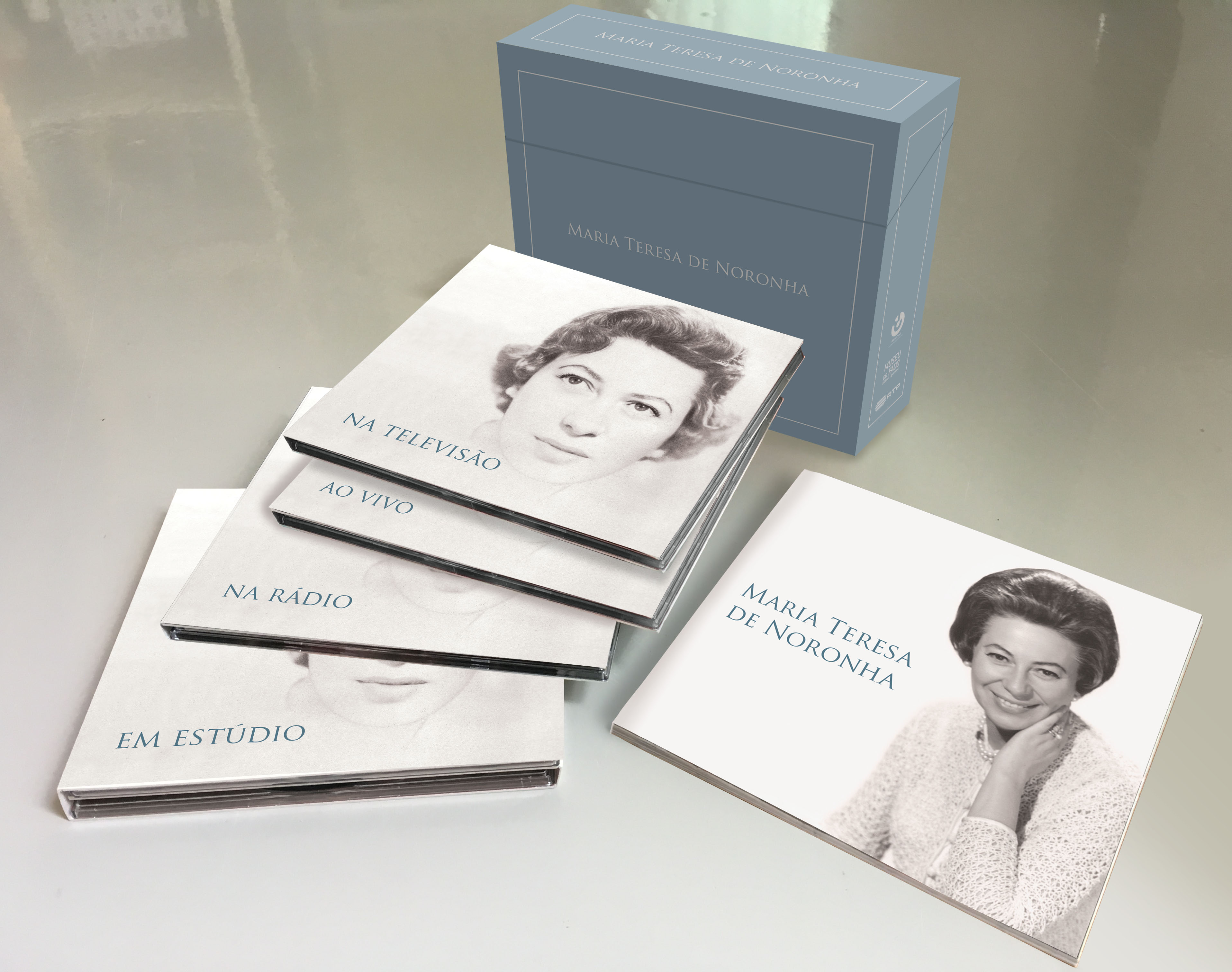Maria Teresa de Noronha - Obra Integral
Date
7 February, 2019
Hours
19:00
Until
7 February, 2019
Prices
Entrada livre no limite dos lugares disponíveis.
Reservas: comunicacao@museudofado.pt ou 21 882 34 70.
Presentation of the complete work of
Maria Teresa de Noronha
By Frederico Santiago, Rui Vieira Nery and Nuno de Siqueira
Feb 7th, 7pm
Auditorium of the Fado Museum
Free entry subject to capacity
Booking: comunicacao@museudofado.pt or 21 882 34 70.


In the framework of the centenary of the birth of Maria Teresa de Noronha, Valentim de Carvalho edits the complete work of the fado singer, which brings together all her recordings in the studio, live, on radio and on television. At the Museu do Fado, the exhibition dedicated to her remains open until February 24th.
Maria Teresa de Noronha was born 100 years ago. Not wanting to stop participating in this celebration, Valentim de Carvalho dedicates a new edition to him with all her known records. For the first time, all the recordings she made in the studio are gathered, remastered from the original sources, now complemented by a vast and surprising new material, which considerably increases one of the most important legacies in the history of Fado.
The survival of most of this “new” material is due to the exceptional work of investigation and conservation of the fadista heritage that we owe to Nuno de Siqueira. Without Nuno, and without the recordings he made, collected and preserved, and which he now so praisingly offers to the general public, this edition would not have been possible. Above all, it would not have the richness that the artistic quality of these records adds to it. Through them, we now know not only unpublished fados in the voice of Maria Teresa de Noronha but also numerous different interpretations of fados that she recorded in the studio, which further enhance the inventiveness of her style.
Also thanks to the collection of Nuno de Siqueira, and his proximity to the family of Maria Teresa de Noronha, we now have access to all his 78 rpm records and the first of his records, made in 1939, at the Emissora Nacional. Only its publication would justify this integral, such as the surprise it causes us and the amount it reveals about the evolution of her vocation - by some considered too refined, and even too close to the classical song, but which in its genesis, as is proved two fados from 1939, more chaste could not be.
It was precisely because it was so grounded in this fadista matrix that Maria Teresa de Noronha's singing could evolve into a song of great lyricism, always more liturgical than operatic, for having nothing theatrical, although faithful to a precept and a technique, and still become a landmark of tradition in Fado.
Very unknown by the new generations, perhaps even in the traditionalist way that she has always chosen for her repertoire, Maria Teresa de Noronha remains one of the fundamental references of this art, and the knowledge of her unavoidable legacy for all those who love Fado.
And if in Fado his path was always “rigorous”, in opera, if she had dedicated himself to this art and technique, Maria Teresa de Noronha would find Mozart her composer of choice, I do not doubt. I am not original in these analogies between the world of fado and the world of opera, I remember the text of a São Carlos program, where Manuel Rio-Carvalho found in Alfredo Marceneiro's style the perfect phrasing for Nemorino (character from the opera O Elixir do Amor), or Nuno Vieira de Almeida in the well-founded parallels he finds between the interpretive geniuses of Amália and Maria Callas.
But more than a style befitting the Mozartian universe, what makes me think of this composer the most, when I listen to Maria Teresa de Noronha, is the ability so rare that she had to increase the sensation of pain just by never screaming. It was this characteristic, shared with most of the heroines of Mozart's operas, from the Countess of the Marriage of Figaro to Pamina of the Magic Flute, that made Maria Teresa de Noronha even more fado: the exquisite modesty she had in showing her suffering.
Frederico Santiago
Edições Valentim de Carvalho
Edições Valentim de Carvalho